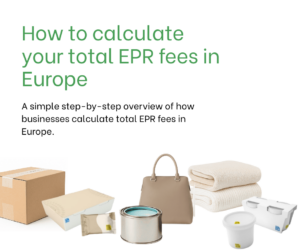Sales tax license: What is it and does your business need one?
Sales tax license: What is it and does your business need one?
In many states, sales tax registration includes obtaining a sales tax license. This document represents authorization to collect sales tax on goods or services. A sales tax license is usually issued to a company upon registration with the relevant tax authorities. Almost all states that have a sales tax require a sales tax license. In different states in the United States, a concept such as a sales tax license may has its own name. The sales tax license designation is only used in states such as Alabama, Colorado, Michigan, Pennsylvania, Utah, Vermont, and Wyoming. A sales tax license in may be known as a resale certificate in Florida, a vendor’s license in Ohio, a seller’s permit in California and Idaho, or a retail license in South Carolina and Missouri. However, a sales tax license is most often referred to as a sales tax permit, sales tax certificate or certificate of registration. States such as Arkansas, Minnesota, Mississippi, Nevada North Dakota, Rhode Island, and Texas use the term sales tax permit, and states such as Connecticut, Iowa, Kentucky and Oklahoma use the term sales and use tax permit. The sales tax license analog, Sales Tax Certificate, is used in states such as Georgia, Kansas, and Louisiana, the term certificate of registration in states such as Tennessee, Virginia, North Carolina, and Illinois. Other states also use their own names for sales tax licenses, but the essence of this document remains the same.
The introduction of sales tax in the United States was implemented in stages in different states starting in the late 19th century. Today, sales tax is in effect in 45 states, making it mandatory for most companies operating in the country. Sales tax is an additional amount that a customer pays. When the consumer purchases a good or service, the vendor adds a percentage sales tax rate, which is set by the state, to the cost of the item. In addition to the sales tax percentage that the state sets, there are additional local county or city sales tax percentages. It is the responsibility of the seller to collect this tax, who is then required to remit the collected funds to the state government. This tax applies only to goods and services that are taxable in the particular state where the relevant legislation exists. There is also such a thing as a tax nexus, which determines whether sales tax applies to your business. There is a physical nexus and an economic nexus. Physical nexus has a different definition from state to state, but generally having a physical presence defines having an office, warehouse, and employees in a particular state. Economic nexus has only been implemented in 2018. Economic nexus is most often defined by metrics such as dollar sales and number of sales. For example, in Maryland, a business has physical Nexus if it has a location, owns or uses property, and has employees in the state. Maryland also imposes sales tax collection obligations on remote sellers whose gross receipts exceed $100,000 or 200 in-state transactions per year. So, to understand whether a sales license is needed in the state you need to determine if there is sales tax in the state, if the product or service is taxable, and if the company has a tax nexus in the state.
If a business sells taxable goods or services and is physically located in the state or exceeds the threshold set by the state, it needs to register for sales tax. For example, you have your business selling goods in Michigan. Your company sells goods that are subject to sales tax over the Internet. In doing so, you have an office and warehouse in the state from which customers receive goods in Michigan and other states. Since you have a physical presence in the Michigan, you need to register for sales tax in the state and obtain a sales tax license. The sales tax license is obtained by your business by registering for sales tax. In Michigan, sales tax licenses are issued for a year, January through December, and the following year the Michigan Department of Revenue issues a new license. This is the common story that the state sales tax office issues a sales tax license for a certain period of time. The sales tax license has a characteristic of expiring. In some states, the sales tax license expires after a year or two. Sometimes there is also a fee for a sales tax license. The cost varies by state and ranges from $10 in Rhode Island to $100 in Connecticut. However, in most states, the sales tax license is free.
After obtaining a Sales Tax License, a business has a few crucial responsibilities for tax compliance. First, acting as an intermediary, the seller must collect sales tax on the purchase of the good or service. Because of this, given the tax rate of a particular state, sometimes even county and city, a business must add the sales tax to the cost of the item at time of purchase. Second, once a company receives a sales tax license, it is required to report sales tax on a regular basis. The frequency is determined by the laws of each state, and sometimes the frequency may depend on the company’s turnover. Thus, depending on the frequency, whether monthly, quarterly or annually, the company must file sales tax returns and report its sales. Third, the business, as mentioned earlier, is required to remit the collected sales taxes to the appropriate taxing authority on a regular basis. Typically, sales tax payments are made immediately after the sales tax return is filed. Thus, the frequency of tax payment and the deadline for paying the tax coincide with the frequency and deadline for filing the sales tax report. Businesses are also required to keep books and records, meet reporting and payment deadlines, and keep up with changes in the law. An important item is to renew your sales tax license. As mentioned in the Michigan example, the license may require renewal annually or every few years in the case of other states. Failure to renew the license in a timely manner may result in violation of the law and loss of the right to collect sales tax.
Not having a Sales Tax License when running a business can lead to serious consequences. Let us look at the main consequences of not having a Sales Tax License on a business. If a business is required to register for sales tax and obtain a sales tax license, and it has not done so, the most obvious thing that awaits it is penalties. The United States imposes significant fines for operating a business without a proper license. Penalties can be assessed for each day or month that a business continues to operate without a sales tax license. In addition, along with penalties, interest will be charged on the amount of unpaid tax, most often for each day of delay. State tax authorities may also require a business to stop operating until the business registers for sales tax and obtains the appropriate license. In the event that the tax was not collected from customers, the IRS can still require the company to pay sales tax. This can lead to significant financial losses, as well as hit the company’s reputation and result in the loss of customers. In New York, a sales tax license is called a Certificate of Authority. For example, if in New York State a company sells taxable tangible personal property or taxable services without the required Certificate of Authority, the penalty will be up to $500 for the first day and up to $200 for each day thereafter. In total, the penalty in New York State for not having a required Certificate of Authority can be up to $10,000.
To operate a business that sells goods or provides taxable services in states where a sales tax is imposed, a Sales Tax License is required. This document grants the business the legal authority to collect sales tax from customers and remit it to the respective state tax authorities. Obtaining and maintaining a Sales Tax License ensures compliance with state tax laws and is a crucial aspect of legal business operations. Conducting business without such a license can lead to severe penalties, including large fines, accruing interest on unpaid taxes, and other financial liabilities. Possessing a Sales Tax License protects businesses from these financial risks by ensuring the proper collection and remittance of sales taxes to the state. Business owners must clearly understand their tax obligations. If a company sells taxable goods or services, it is important to determine if it needs state sales tax registration, register if necessary, and obtain a sales tax license in the appropriate states.



